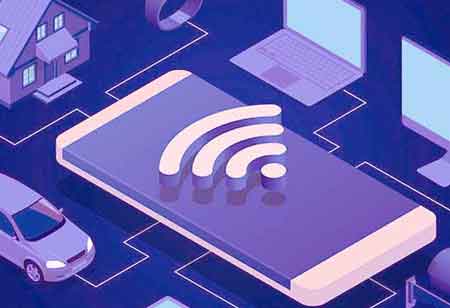THANK YOU FOR SUBSCRIBING
Innovations in Digital Healthcare
We live in the era of digital innovation. So it's no wonder the healthcare industry is following suit and digitalizing its operations.

By
Apac CIOOutlook | Tuesday, November 23, 2021
Stay ahead of the industry with exclusive feature stories on the top companies, expert insights and the latest news delivered straight to your inbox. Subscribe today.
The digital transformation of healthcare will continue to gain momentum over the next few years, and healthcare providers are increasingly demanding digital technologies to improve patient care while setting best practices within the framework
Fremont, CA: We live in the era of digital innovation. So it's no wonder the healthcare industry is following suit and digitalizing its operations. From wearable data-driven insights to mobile apps to help manage chronic illnesses, it's clear that technology is changing health care forever.
Here are some of the most exciting digital health trends that are currently shaping the industry.
Consumer AI
Many healthcare systems have already decided to integrate artificial intelligence (AI) into their operations, not just for cost reasons. With AI, healthcare organizations can better address complex population health management challenges such as reduced patient satisfaction, readmission rates, and increased care costs. In addition, consumer AI plays an essential role in improving the status quo of healthcare. For example, at home, AI helps patients better understand their symptoms and treatments by providing individualized recommendations generated from individual biological data of the individual.
Big Health Data
The proliferation of wearable technologies is also contributing to the rise of extensive health data, an ever-growing source of information that can provide companies and healthcare providers with valuable insights into patient care. For instance, large-scale health data can be used to more accurately predict the occurrence of chronic disease in patients who are predisposed to chronic disease. You can also create more efficient and effective clinical pathways to improve hospital administration. Therefore, the development of large-scale health data initiatives that enable secure exchange between healthcare providers and their patients is now more focused, especially with regard to cloud-based technologies that enable real-time tracking of patient health data.
Drug Discovery with Machine Learning
With the advent of extensive health data, machine learning (ML) is becoming more and more critical in healthcare. ML refers to predictive analytics to screen large amounts of medical data and identify patterns that can be used to improve patient outcomes. ML predicts a patient's response to a drug, which helps determine which patients will most benefit from a particular treatment. This type of predictive analytics works well with genetic data and provides clues about how a person reacts in a particular situation. Predictive analytics can be used to enable healthcare providers to create targeted care plans based on the needs of individual patients.
Check Out This: Drug Discovery and Development Service Companies





